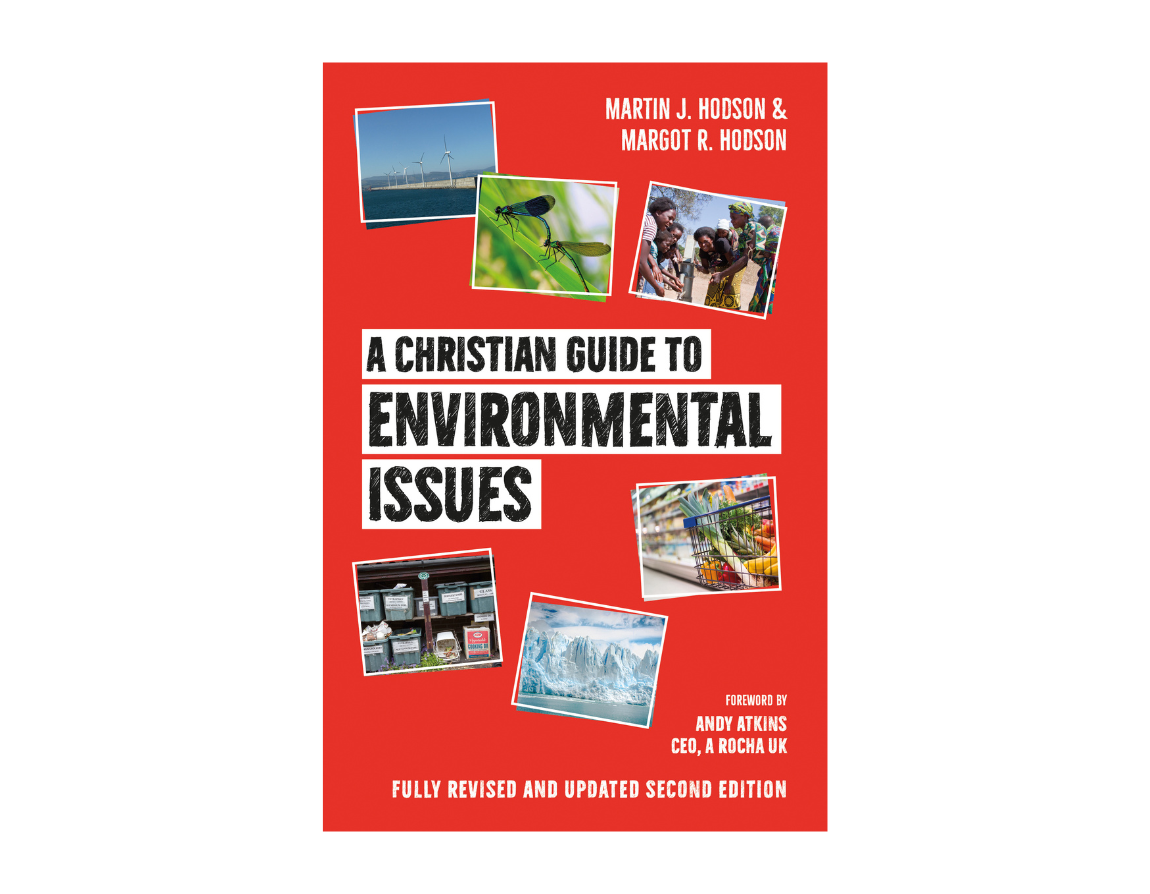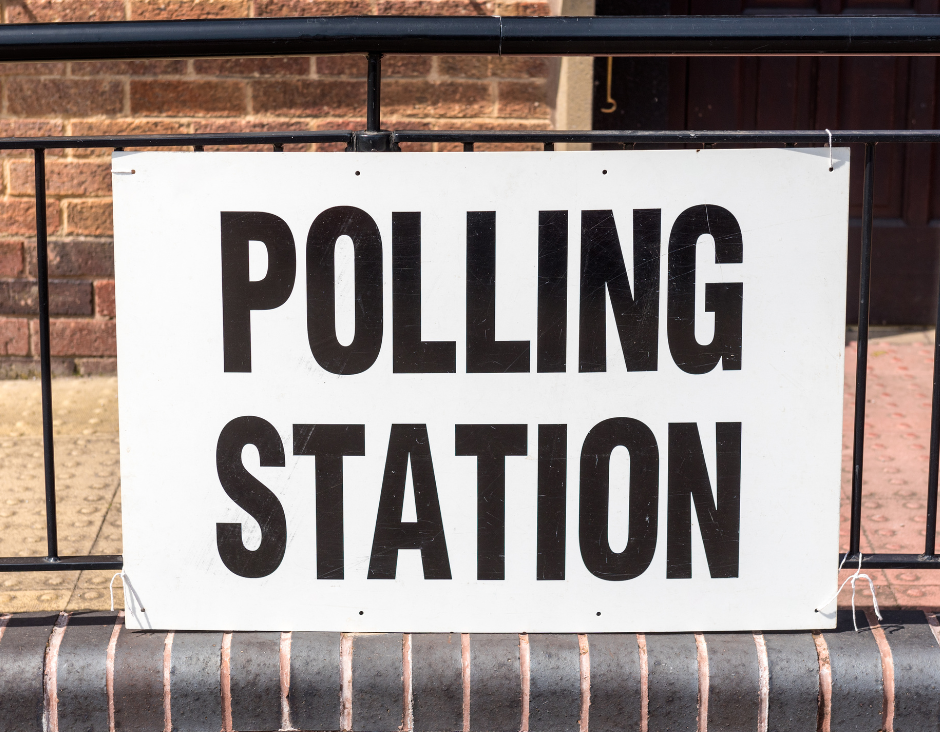In our final article on the gospel values that might guide your decision-making in the election on 4 July, Martin and Margot Hodson, authors of A Christian Guide to Environmental Issues, consider the environment and climate emergency.
30 June 2024
Where are we now on the environment?
The environment has risen up the news agenda in recent years, and with very good reason. On the eve of the election, many of us believe that one of the most important questions we need to consider is where are we on the environment? Let us first briefly outline the current issues.
Planetary boundaries
One way of looking at this is known as planetary boundaries. Last year Katherine Richardson and her colleagues published a paper that reported we were now over the safety limits globally for six of the boundaries: biosphere integrity (including biodiversity loss); climate change; biogeochemical flows (the phosphorus and nitrogen cycles); land-system change; freshwater change; and novel entities (which includes plastic and chemical pollution). Take that in for a minute. It is not only climate change where we are in trouble, but across five other key issues.
Climate change is, however, the issue that has captured the public attention, and the latest news is grim. Despite all the warnings from scientists, humanity has not cut carbon emissions and as a result we are seeing record global temperatures. From about the middle of 2023 surface temperatures have been higher every month than they have ever been before: now twelve months in a row (to May 2024). So, 2023 broke the record as the warmest year, and 2024 might even break that.
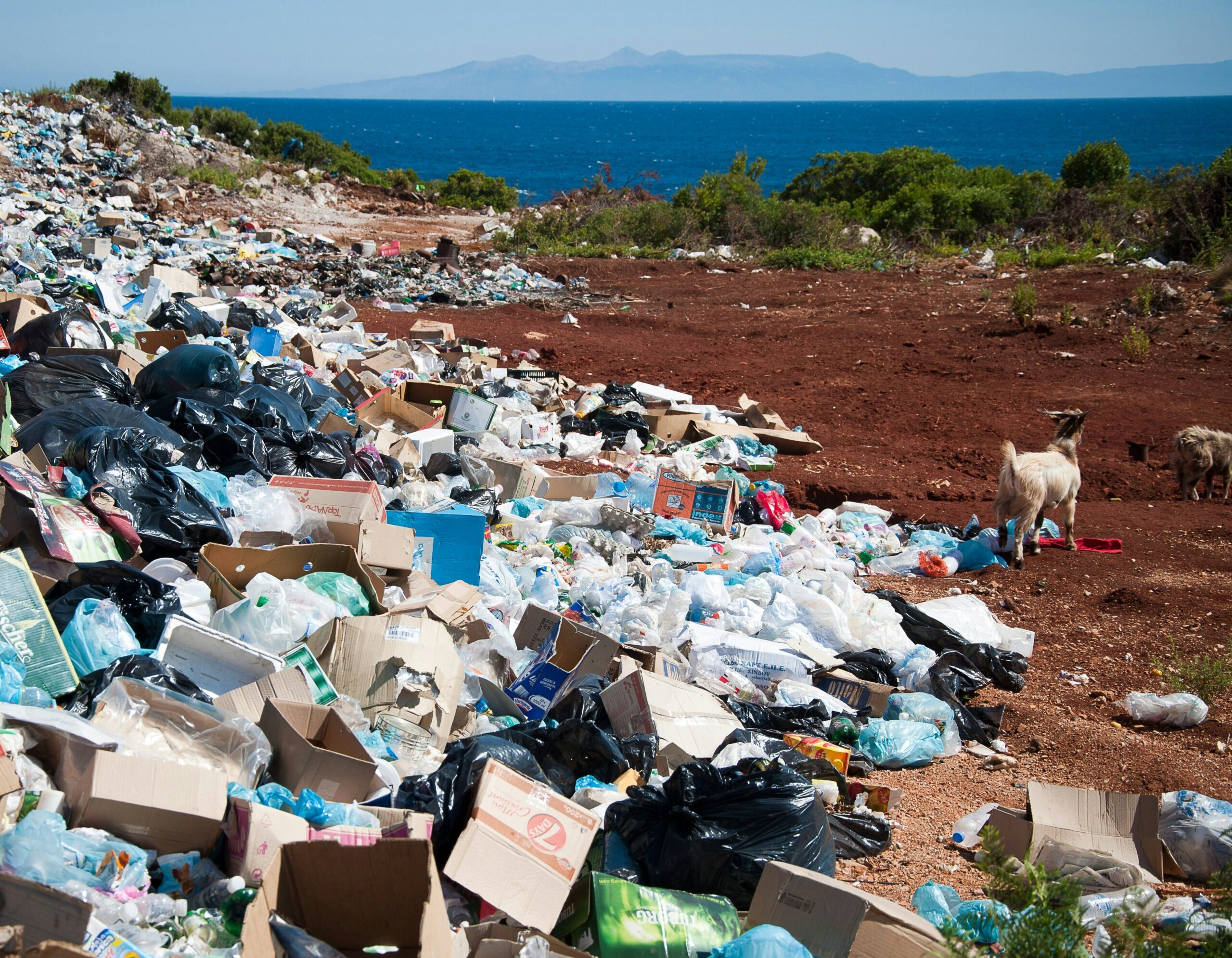
It is not only climate change where we are in trouble, but across five other key issues.
Why climate scientists are worried
Some of this is due to an El Niño event in the Pacific Ocean, but a lot is down to our carbon emissions. So we are 1.63oC above preindustrial temperatures over the past twelve months. You might remember that the United Nations set a target of 1.5oC in Paris in 2015. We are not over the target yet, as we would need to be above 1.5oC for several years, but climate scientists are worried.
Perhaps even worse are the sea surface temperatures, which are rising alarmingly. The real worry is that this will increase the strength of any hurricanes that form in the Atlantic this summer and autumn. In basic terms the hotter the water the stronger the hurricane.
In its last report the Intergovernmental Panel on Climate Change said that the evidence for human-induced global warming was now ‘unequivocal’. There is no longer any debate or any doubt. Or should not be. If we keep going as we currently are we will reach something like a 4oC rise by the end of the century. So, we need to make radical cuts in carbon emissions to avoid that scenario, and very quickly.
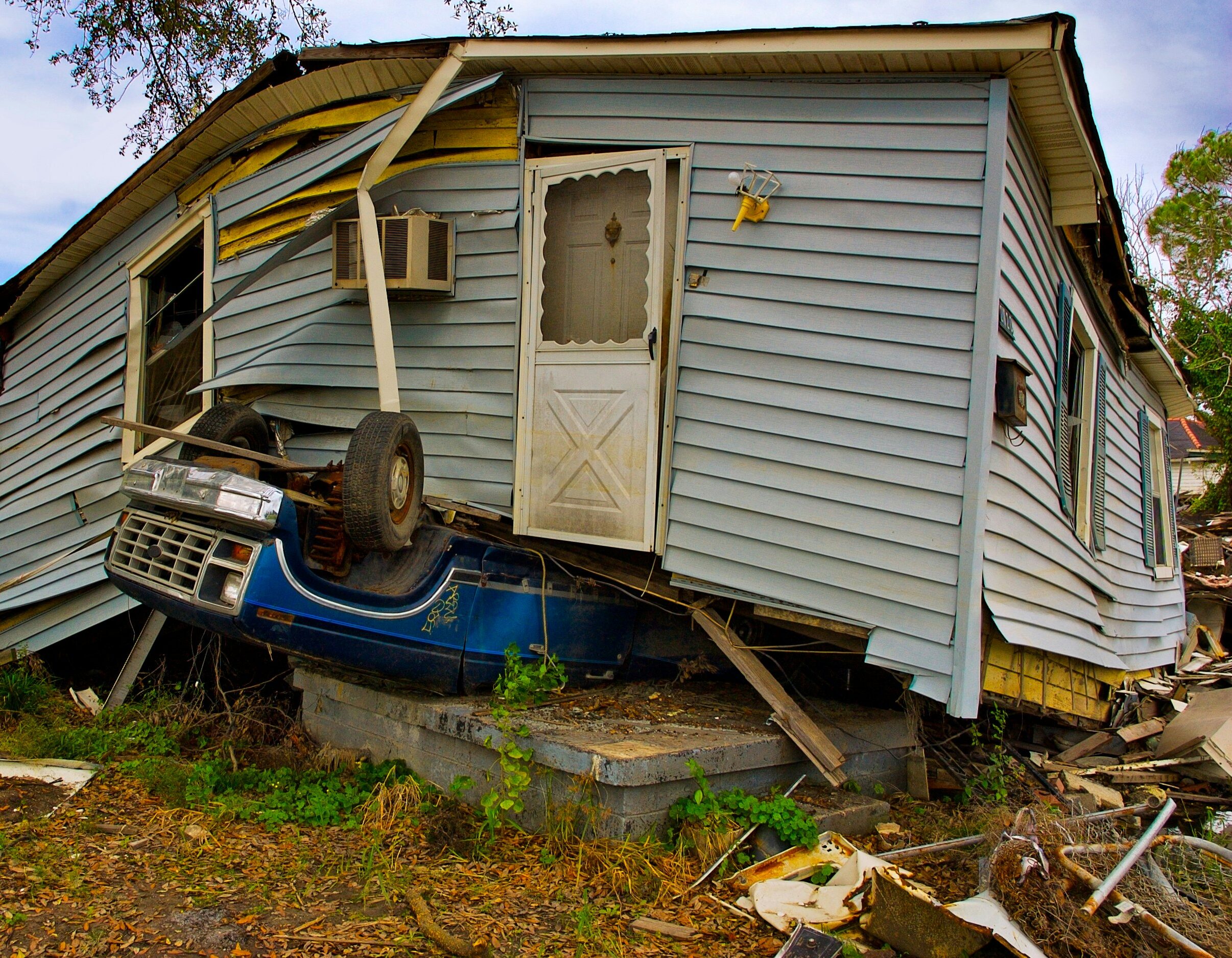
The evidence for human-induced global warming is now ‘unequivocal’. There is no longer any debate or any doubt. Or should not be.
Not just climate change
But, as we said at the beginning, our problem isn’t only climate change. According to the WWF, animal populations have declined by 69% between 1970 and 2018. Only 4% of mammal biomass is wild, and the remaining 96% consists of humans and our domesticated animals.
The total mass of plastics now exceeds the total mass of all living mammals.
Just 14% of English rivers have a good ecological status. None have a good chemical status, with nitrogen and phosphorus levels often exceeding safety limits.
So given all of this you might imagine that governments around the world would be pressing the emergency button on the environment and taking the necessary action. Far from it! Yes, we have seen some questions about the environment at the various UK election debates. The issue is moving up the agenda, but not fast enough. So what environmental questions should we be asking our politicians?
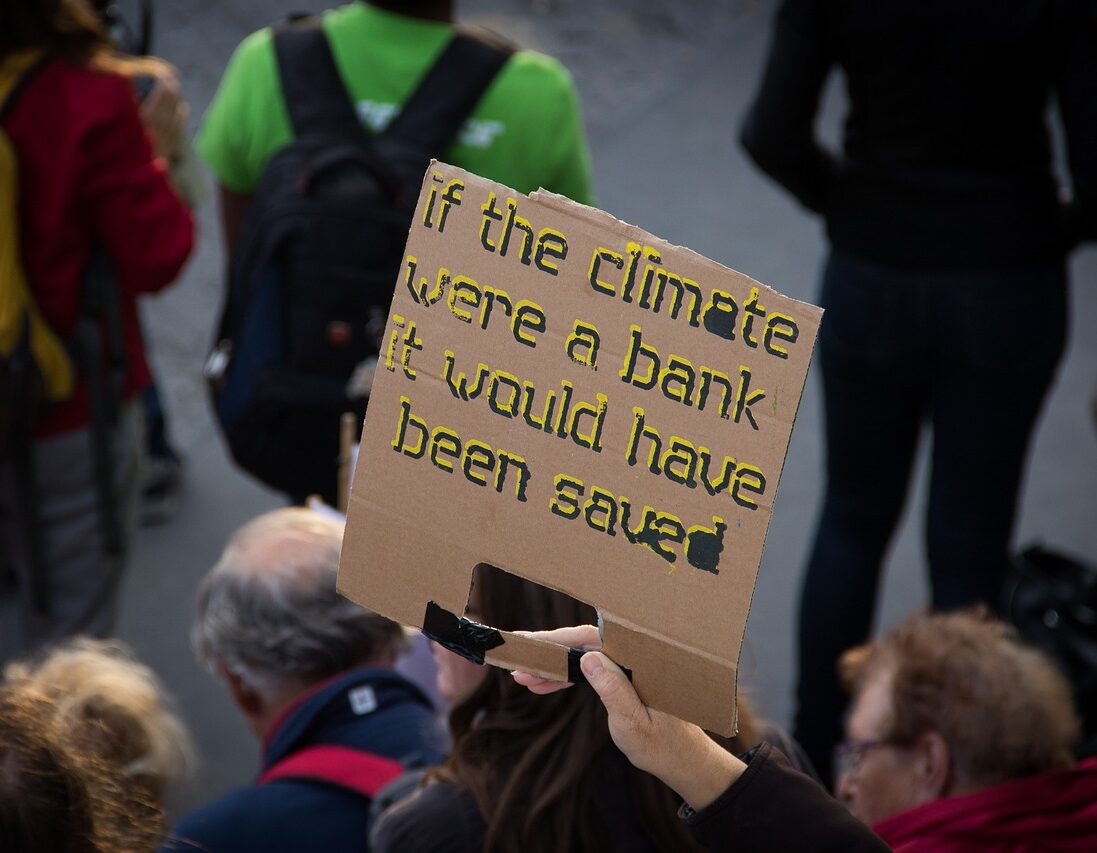
You might imagine that governments around the world would be pressing the emergency button… Far from it!
A Christian approach
Nowhere in the Bible does it tell you which party to vote for. Even if you were going to vote entirely on a party’s environmental policies, it would not tell you. And of course, most people consider policies on a range of issues, not just the environment. While we would argue that the environment is in such a crisis that we should be placing considerable weight on this issue, others may disagree. Suppose, though, that we only consider the environment, what general Christian principles and values should we apply?
The first word most Christians think of when considering this topic is ‘stewardship’. This concept has had a pretty rough time from theologians in recent years, for a whole variety of reasons, which we haven’t space to go into here. But it is clear from the biblical account that we humans should be looking after this Earth. Genesis 2:15 (NIV) says: ‘The Lord God took the man and put him in the Garden of Eden to work it and take care of it.’ It is often taken as the first commandment we were given. If we are honest, we have done a pretty terrible job of tending the garden. So, question number one is:
Will a particular party’s policies help in our stewardship of this planet?
Secondly, Psalms 24:1 (KJV) has this to say: ‘The earth is the Lord’s, and the fulness thereof.’ The earth belongs to God, not to us. We are tenants not owners. If we damage it, we are damaging God’s handiwork and diminishing the ‘fulness’ that he intends us, and the rest of creation, to enjoy.
So, question two is:
Will a party’s policies increase or decrease the fulness of the Earth?
Finally, as we saw in the first article in this series, God has a bias to the poor: ‘He has brought down rulers from their thrones but has lifted up the humble. He has filled the hungry with good things but has sent the rich away empty’ (Luke 1:52-53, NIV).
Overwhelmingly it is the poor who suffer most from environmental degradation, whether they are in the United Kingdom, the United States or sub-Saharan Africa. In cities around the world, it is predominantly the poor who are affected by air pollution. When Hurricane Katrina hit New Orleans in 2005, the rich had already mostly left the city but the poor were left behind to face the devastation. In Bangladesh, it is the poor who suffer when rising sea levels destroy their fields. And even though the poorer nations have low carbon emissions and have hardly contributed to the problem, they suffer most from climate change.
So, question three is:
How will an elected party show ‘a bias to the poor’ in tackling the environmental crisis?
This is a difficult time, and it is a crucial election for the UK. We believe that the global environmental crisis needs to be addressed, and the time to do that is now. Please pray and vote wisely!
References on these questions are often highly technical. We’ve also drawn on news reports and in some cases top climate scientists’ X accounts, so the data is not yet published. A useful selection of references on all these issues can found in our A Christian Guide to Environmental Issues.


